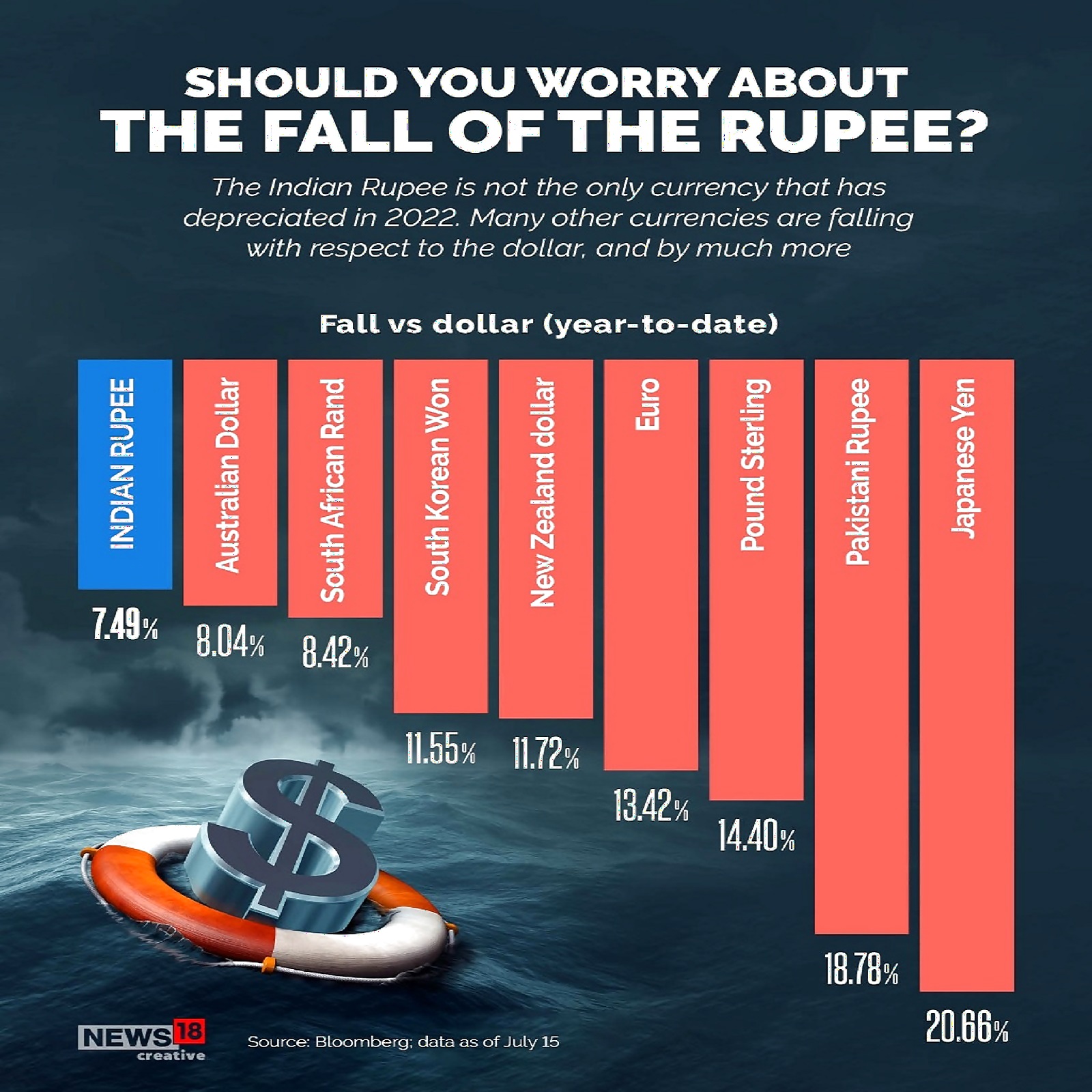
views
As the Indian rupee has been weakening for the past few months due to foreign capital outflows, it is affecting people by making imports costlier and stoking inflation in the country, thereby also reducing net returns on investments. Experts, however, said those planning to go abroad for study or tour are unlikely to be hit significantly as other currencies across the globe are also falling against the US dollar.
The rupee has depreciated by about 7.5 per cent against the US dollar since January 2022, due to the outflow of foreign investments, tight monetary policy by US Federal Reserve, surging crude oil prices and general dollar strength. This has been aggravated by global uncertainties arising out of a geopolitical crisis due to the Russia-Ukraine war.
The domestic currency had stood at 73.77 to a dollar on January 12, 2022. It now stands at 79.90 against a dollar. It plunged to a record low against the US dollar for the fifth straight session on Friday and opened trading 5 paise lower at 79.92 against the US dollar. The rupee closed at 79.99 against the dollar on Thursday, according to interbank exchange data.
However, recently, the euro has also broken the parity with the dollar and plunged to $0.9998 against the greenback, breaking below the $1 level for the first time since December 2002, before bouncing back to $1.0024.

How Is Weakening Of Currencies Affecting Those Planning Foreign Trips?
Those going abroad need to exchange the domestic currency into the currency of the destination country. A weaker rupee means that more money would be required to exchange the same amount of currency as compared to earlier. However, if the currency of your destination country is also falling, it is unlikely to affect you. For instance, the euro, which was quoted against the rupee at Rs 83 some times ago, is now under Rs 80.
Sudarshan Motwani, founder & CEO of BookMyForex.com, told news18.com, “A weaker euro will make travelling to European countries, including Greece, Paris and Italy, cheaper as the costs of facilities like accommodation, ground transport, fees at attractions, guide fees and meals are covered in the euro component, which works to around 50-60 per cent of the cost.”
He, however, added that travellers going to the US or other countries whose currencies are pegged to the dollar will need to shell out more money for their international trip as the rupee slides. “The Indian visitors will need to spend more rupee now to buy the equivalent amount of dollars, substantially pushing up the overall cost of their trip.”
Anindya Banerjee, vice-president (currency derivatives & interest rate derivatives) of Kotak Securities has said that as long as the pace of depreciation in the rupee remains slow, Indian students going abroad for studies should not get impacted significantly.
Here’s What People Should Do: Forex markets have become very volatile and, hence, it is strongly advised to hedge currency risk by buying forex (foreign exchange) cards at fixed rates. “Also, the travellers should keep an eye on the forex rates if their travel plan is nearby and freeze the rates of their travel money as soon as the rates look desirable,” Motwani said.
How Is A Weaker Rupee Affecting Inflation and Thus Investments?
As most of the crude oil, edible oil, auto parts and pharmaceutical ingredients in India is imported, the weakening of the rupee raises the prices of these commodities, thus raising inflation in the country.
The high rate of inflation affects overall annual returns for investors. For example, if a portfolio has given an investor a 10 per cent return and the inflation is 4 per cent, then the real return rate is 6 per cent. But, as high inflation reduces companies’ profitability due to higher cost of inputs, the return on shares also declines. Let’s say, now, a portfolio gives an investor a reduced 7 per cent return now and the inflation rate is also 7 per cent. In this case, real rate of return is zero. So, inflation affects both profitability of a company and real returns for investors.
Geojit Financial Services Chief Investment Strategist V K Vijayakumar has said the rupee depreciation is good for export sectors, particularly IT (information technology) companies. Exporters of speciality chemicals and textiles will also gain.
Stocks that are export-oriented such as specialty chemicals, IT and textiles can be looked at amid the rupee decline as they can gain on high foreign demand; while sectors such as metal, banking and fast-moving consumer goods and are at the receiving end.
Read all the Latest News, Breaking News, watch Top Videos and Live TV here.




















Comments
0 comment